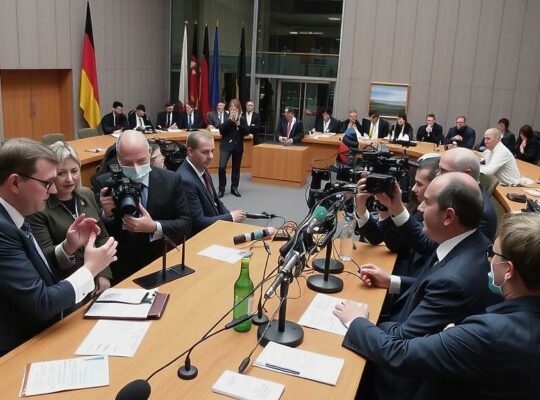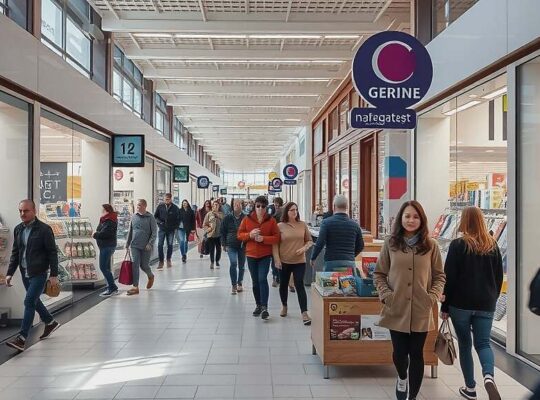The German retail sector remains mired in a persistent period of subdued performance, according to the latest data released by the Ifo Institute in Munich. While the retail climate index edged up slightly in October to -23.2 points from -23.8 in September, the marginal improvement fails to mask a deeply entrenched atmosphere of cautious pessimism amongst businesses.
Ifo expert Patrick Höppner characterized the current situation as “moving sideways at a low level” highlighting the particularly troubling lack of confidence regarding future prospects. The prevailing sentiment suggests that numerous retailers anticipate a continued challenging business environment stretching well into 2026. This long-term outlook underscores the potential for structural issues, fueled by shifting consumer behavior and broader economic uncertainties.
The nuanced landscape within the sector reveals a mixed bag. Furniture stores and hardware retailers experienced a slight uptick in morale, while the clothing retail segment has seen a marginal downturn. Critically, over half of all retailers reported restrained consumer spending, a direct consequence of inflationary pressures and a palpable apprehension about the economic outlook. The decline in foot traffic to brick-and-mortar stores, reported by 45.3% of retailers in the third quarter, paints a stark picture of the disruption caused by the continued dominance of online shopping. While online retail channels fared relatively better, with a lower proportion of retailers reporting declines in clicks, the ongoing shift necessitates significant investment and adaptation for traditional retail models.
The anticipation of price increases is also gathering momentum. The indicator for price expectations saw a slight rise in October to 25.9 points, signaling a potential pass-through of operational cost burdens onto consumers. This trend is particularly pronounced within the furniture and food retail segments, adding further pressure on household budgets and potentially dampening consumer demand.
Beyond consumer behavior, underlying structural challenges are contributing to the sector’s woes. A significant 25.4% of retailers cite labor shortages as a key impediment to growth, indicative of broader demographic trends and the difficulty in attracting and retaining skilled employees. Furthermore, 6.8% are grappling with financing difficulties, suggesting vulnerability to interest rate fluctuations and tightened credit conditions. These combined factors raise questions about the long-term viability of certain retail businesses and demand a focused policy response targeting both consumer confidence and the structural resilience of the German retail landscape.












